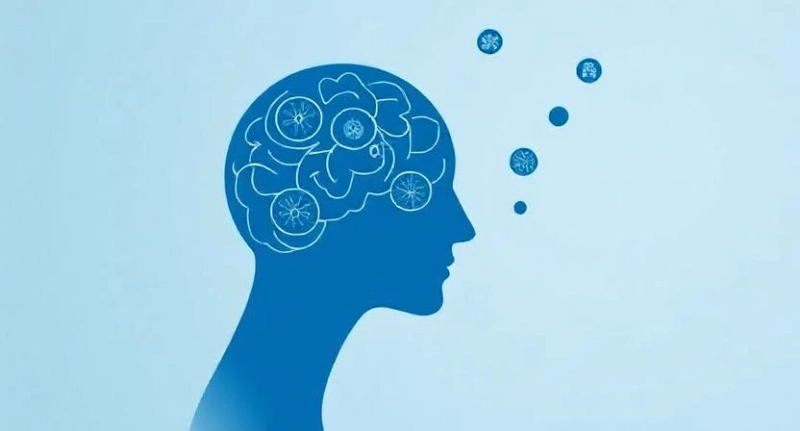Social media is undeniably a significant part of modern life. It connects us with friends, family, and communities across the globe, offers entertainment, and provides platforms for expression. However, as a top health coach, I often find that social media also has a profound impact on mental health—both positive and negative. Understanding how it affects our emotional well-being is essential in navigating its use in a balanced and mindful way.
In this blog, we’ll dive into how social media affects mental health, why mental health is important, and provide tips to boost your mental health while managing your social media habits. We’ll also highlight the significance of Men’s Mental Health Month and Mental Health Awareness Month.
https://www.youtube.com/watch?v=uMWQ3Lm4alA&list=PLq63iU2aB5Vt4Lsw-Hx7aIRCkO4i_pQ7c&pp=gAQB
How Does Social Media Affect Mental Health?
While social media offers numerous advantages, such as connection, information-sharing, and entertainment, there are significant concerns regarding its impact on mental health. Here’s how social media can affect your emotional well-being:
1. Social Comparison and Low Self-Esteem
One of the most common negative effects of social media is the tendency to engage in social comparison. We all know that social media platforms often showcase the "highlight reel" of people's lives. People post their best photos, achievements, and moments, which can create a distorted sense of reality. Constantly comparing your life, appearance, or achievements to those of others can contribute to low self-esteem, anxiety, and feelings of inadequacy.
This is particularly harmful when people internalize these comparisons and believe that their lives fall short of the idealized standards set by others on social media. The pressure to keep up with others can create a sense of failure or lead to self-doubt, which negatively impacts mental health.
2. Cyberbullying and Negative Interactions
Social media has unfortunately become a breeding ground for cyberbullying. The anonymity of the internet allows people to say things they wouldn’t in person, and it’s not uncommon for users to face online harassment. Negative comments, trolling, or even direct threats can cause severe emotional distress.
Even without direct cyberbullying, the nature of social media interactions—such as judgmental comments, hurtful criticism, or exclusion—can lead to feelings of rejection and loneliness. Over time, this can erode self-worth, increase anxiety, and contribute to depression.
3. Fear of Missing Out (FOMO)
The phenomenon of FOMO (Fear of Missing Out) is another significant impact of social media on mental health. When we see posts of our friends attending events, going on vacations, or achieving milestones, it’s natural to feel left out. FOMO can trigger feelings of anxiety, loneliness, and even depression, especially when we feel disconnected or perceive ourselves as missing out on opportunities for social connection or personal growth.
Moreover, social media often promotes an unrealistic sense of living an exciting or glamorous lifestyle, which can lead to feelings of dissatisfaction with one’s own life.
4. Addiction and Overuse
Excessive social media use can lead to addiction, and the constant need to check notifications or refresh news feeds can have a detrimental effect on mental health. The addictive nature of social media platforms, driven by the dopamine hit from likes, comments, and shares, can create unhealthy habits. These habits can disrupt daily activities, interfere with face-to-face social interactions, and result in neglecting personal health, hobbies, or productive tasks.
The constant availability of new content makes it challenging to disconnect, leading to excessive time spent online. This habit can cause mental fatigue, lack of focus, and heightened stress levels.
5. Sleep Disruption
Many people use their phones or devices right before bed, scrolling through social media. This late-night engagement can disrupt sleep patterns, particularly because the blue light emitted by screens interferes with the production of melatonin, the hormone responsible for regulating sleep. Insufficient or poor-quality sleep can negatively affect mood, cognitive function, and mental health, leading to increased stress, irritability, and reduced emotional resilience.
Tips to Boost Your Mental Health in the Age of Social Media
While social media can have negative impacts on mental health, it’s important to remember that we can take steps to manage its influence on our emotional well-being. Here are some tips to boost your mental health while navigating the digital world:
1. Curate Your Feed
Start by curating your social media feeds to follow accounts that uplift, inspire, and educate. Seek out mental health advocates, motivational speakers, and individuals who promote healthy living, self-love, and personal growth. On the other hand, consider unfollowing or muting accounts that make you feel anxious, inadequate, or stressed. Surrounding yourself with positive, supportive content can help you maintain a healthy relationship with social media.
2. Set Boundaries and Limit Time Spent Online
Social media can be addictive, so it’s crucial to set boundaries. You might want to designate specific times for checking social media, such as in the morning or evening, and avoid using it during meals or before bed. Many apps have built-in features that allow you to track and limit screen time, so use these tools to help curb overuse.
Taking regular breaks from social media will also help you avoid burnout and allow you to focus on more meaningful, real-life experiences.
3. Engage in Meaningful Conversations
Rather than just scrolling through posts, make an effort to engage in genuine conversations. Comment on posts, reach out to friends, and participate in online communities that promote positive discussions and support. Meaningful interactions can foster a sense of connection and belonging, which is crucial for mental health.
4. Practice Digital Detoxes
A digital detox involves taking a break from social media for a set period—whether it’s a few hours, a day, or even a weekend. This break allows you to disconnect from the online world and recharge. During a digital detox, focus on offline activities like reading, exercising, or spending time with loved ones. Disconnecting from the digital noise can help you regain perspective and reduce feelings of stress or overwhelm.
5. Mindfulness and Self-Care
Practice mindfulness when using social media. Pay attention to how certain content makes you feel and take note of when you’re feeling stressed, anxious, or inadequate. Mindful awareness can help you identify when it’s time to take a step back and recalibrate. Additionally, engaging in self-care practices like meditation, journaling, and exercise can help you maintain emotional balance and reduce the impact of negative online experiences.
When is Men’s Mental Health Month?
Men’s Mental Health Month is observed every June. This month aims to raise awareness about the unique mental health challenges men face and encourages them to seek help when needed. Traditionally, men have been less likely to talk openly about their emotional well-being due to societal norms about masculinity. Men’s Mental Health Month provides a platform for breaking the stigma and fostering discussions around mental health in men.
When is Mental Health Awareness Month?
Mental Health Awareness Month takes place every May. The purpose of this observance is to increase awareness and understanding of mental health conditions, reduce stigma, and promote the importance of mental health care. Throughout May, various organizations and individuals share resources, personal stories, and advocacy efforts to ensure that everyone has access to mental health support when needed.
Why is Mental Health Important?
Mental health is essential for overall well-being. It affects how we think, feel, and act, influencing our ability to manage stress, maintain relationships, and make decisions. Good mental health allows us to cope with life’s challenges, thrive in our personal and professional lives, and achieve our goals. Prioritizing mental health is crucial, as it impacts every aspect of our life, including our physical health, emotional well-being, and social interactions.
Conclusion: Maintaining Balance in the Digital Age
Social media is here to stay, but how we interact with it can make all the difference in preserving our mental health. By being mindful of the impact social media has on our emotional well-being and taking active steps to limit its negative effects, we can enjoy the benefits of social connection without compromising our mental health. Implementing the tips to boost your mental health, such as curating your feed, setting boundaries, and taking regular breaks, will help you navigate the digital landscape in a healthy and balanced way.


